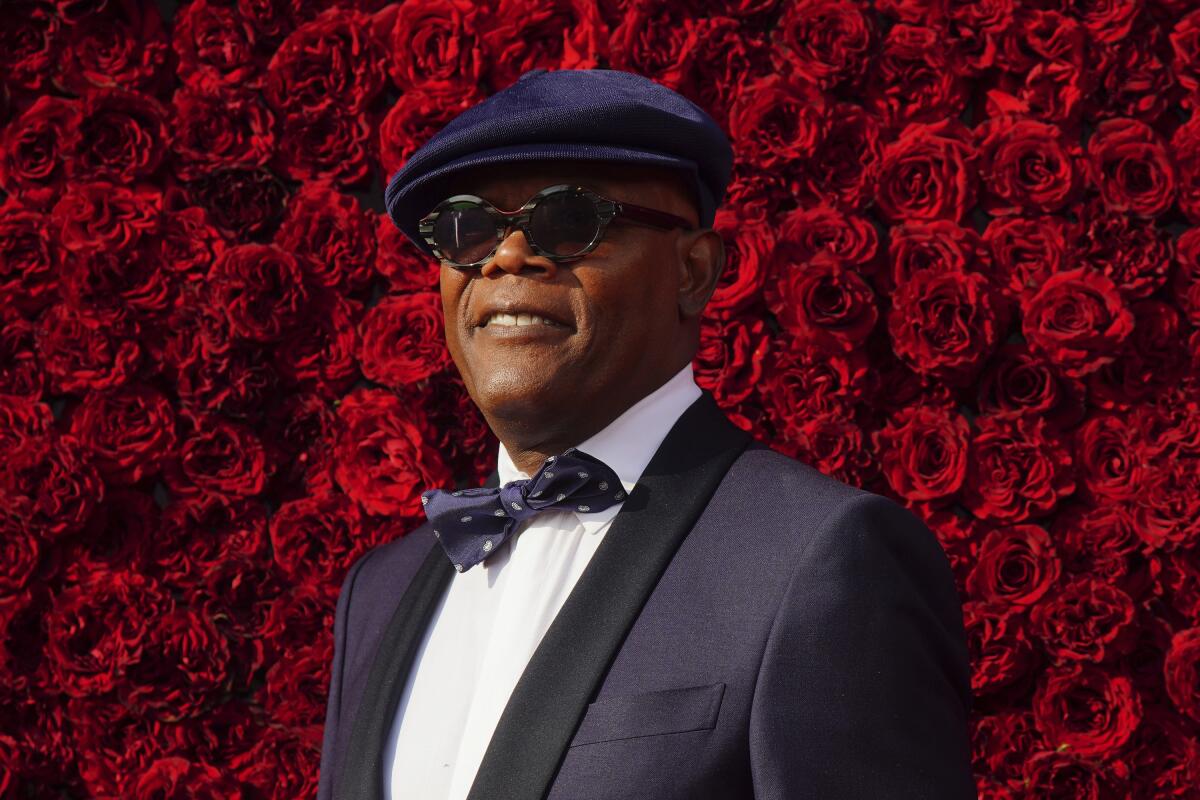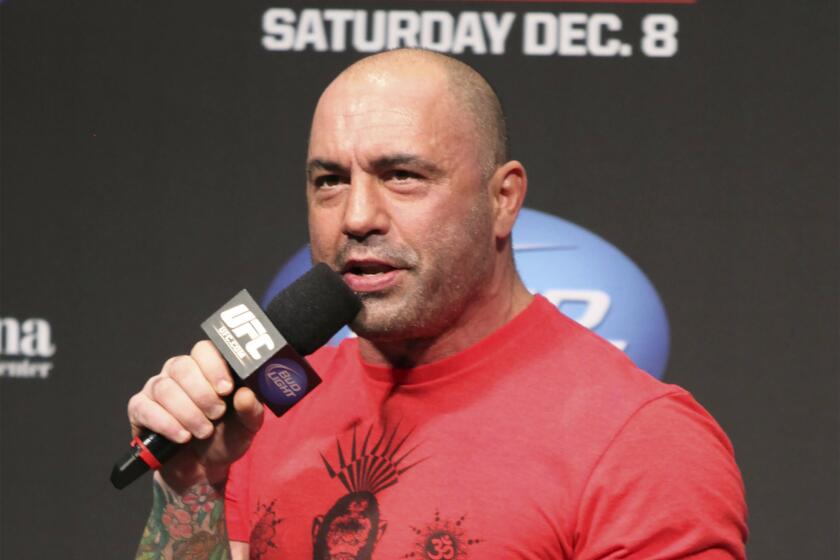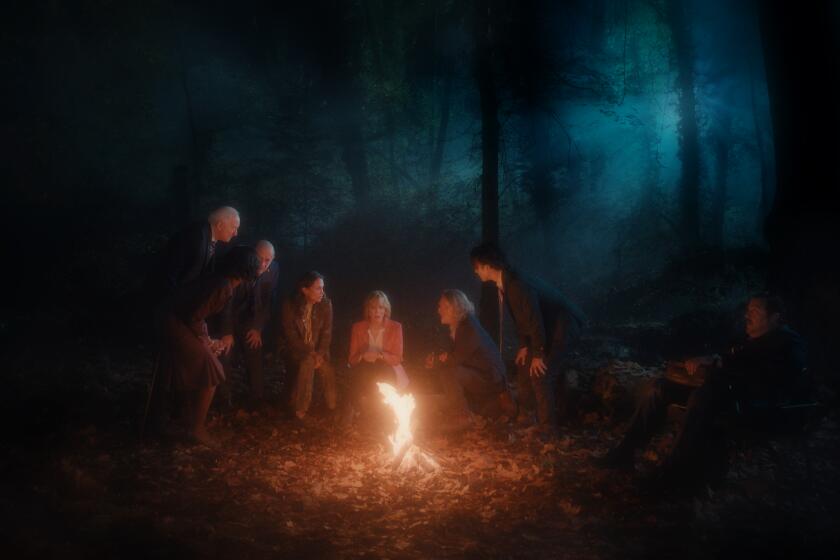Samuel L. Jackson rejects Joe Rogan’s excuse for using N-word and defends Tarantino

Samuel L. Jackson, who has starred in six Quentin Tarantino films that repeatedly use the N-word, has weighed in on podcaster Joe Rogan’s recent controversy involving the racial epithet.
This year’s honorary Oscar recipient, 73, rejected “The Joe Rogan Experience” host’s apology, which came earlier this month after a supercut video showing Rogan using the slur went viral. Artists such as India Arie called the commentator “consciously racist” and pulled their music from Spotify over it.
In an Instagram video, Rogan said that he knew “for most people there’s no context where a white person is allowed to say that word, never mind publicly on a podcast.” He said that he agreed with that now and hasn’t said the word in years, but for a long time “instead of saying ‘the N-word,’ I would just say the word.”
In a stand-up set Tuesday, podcaster and comedian Joe Rogan weighed in on the controversy that has entangled him and Spotify over the past few weeks.
That reasoning didn’t make sense to Jackson.
“He is saying nobody understood the context when he said it, but he shouldn’t have said it,” the veteran actor told The Times of London. “It’s not the context, dude — it’s that he was comfortable doing it. Say you’re sorry because you want to keep your money, but you were having fun and you say you did it because it was entertaining.”
Jackson said that use of the racial slur “needs to be an element of what the story is about. A story is context — but just to elicit a laugh? That’s wrong.”
“The Hateful Eight” and “Pulp Fiction” star cited his experiences on the set of Tarantino’s Oscar-winning 2012 film, “Django Unchained.” The 1850s-set film generated a lot of controversy over its use — and overuse — of the epithet when it was uttered hundreds of times. And Jackson’s co-star Leonardo DiCaprio pushed back on his plantation-owner character’s repeated use of the term.
‘The fact that he did it repeatedly and was conscious and knew — I think that is being racist,’ India Arie said of Joe Rogan saying the N-word.
“While we were rehearsing ‘Django Unchained,’ Leo said, ‘I don’t know if I can say ‘n—’ this many times.’ Me and Quentin said that you have to,” Jackson explained, then defended Tarantino’s work as authentic to the setting. “Every time someone wants an example of overuse of the N-word, they go to Quentin — it’s unfair. He’s just telling the story and the characters do talk like that. When [’12 Years a Slave’ director] Steve McQueen does it, it’s art. He’s an artiste. Quentin’s just a popcorn filmmaker.”
And Jackson knows a thing or two about those so-called popcorn films.
Throughout his interview with the British outlet, the Marvel star argued for a “most popular film” Oscar — a decision the Academy of Motion Picture Arts and Sciences scrapped shortly after announcing it in 2019.
The film academy will present honorary Oscars to Samuel L. Jackson, Elaine May and Liv Ullmann, and the Jean Hersholt Humanitarian Award to Danny Glover.
“All movies are valid. Some go to the cinema to be moved dearly. Some like superheroes. ... There are people who have had successful careers, but nobody can recite one line of their parts,” he said. “I’m the guy who says s— that’s on a T-shirt.
“They should have an Oscar for the most popular movie,” he added. “Because that’s what the business is about.” When asked if an Oscar should be given to “Spider-Man: No Way Home,” which made $1.8 billion and revitalized the pandemic box office, Jackson wholeheartedly agreed: “They should! It did what movies did for ever — it got people to a big dark room.”
Jackson has appeared in scores of movies and has been Oscar nominated only for his turn in 1994’s “Pulp Fiction.” This year, he’s being given the film academy’s honorary Oscar, which as The Times of London noted, is “a statuette given to stars who, awkwardly, never won an Oscar.”
“But Oscars don’t move the comma on your check — it’s about getting asses in seats and I’ve done a good job of doing that,” Jackson said.
More to Read
Only good movies
Get the Indie Focus newsletter, Mark Olsen's weekly guide to the world of cinema.
You may occasionally receive promotional content from the Los Angeles Times.














